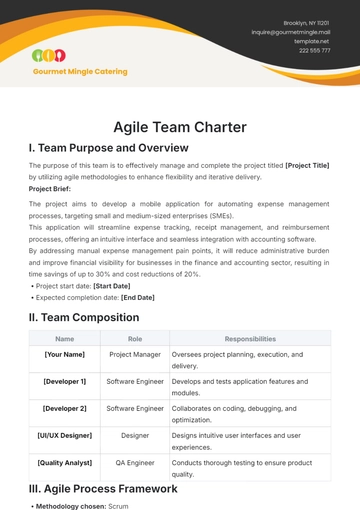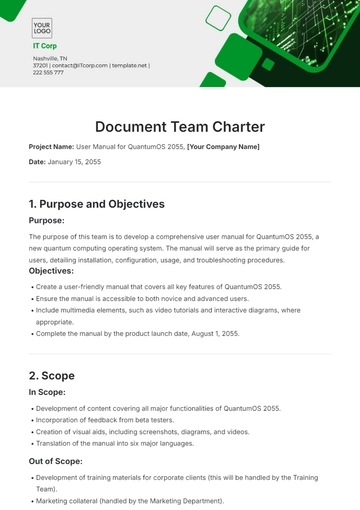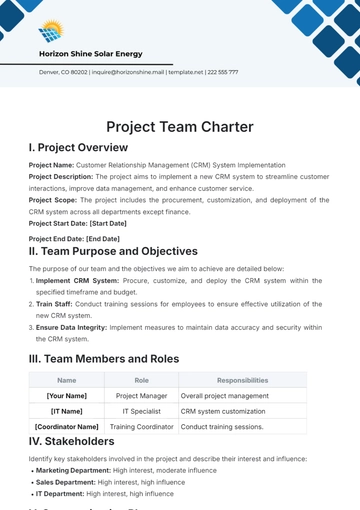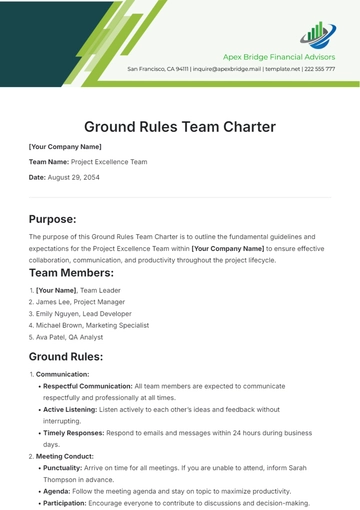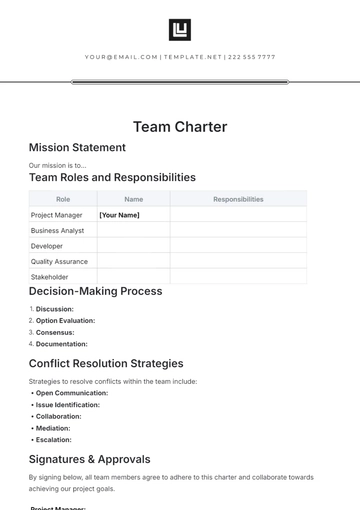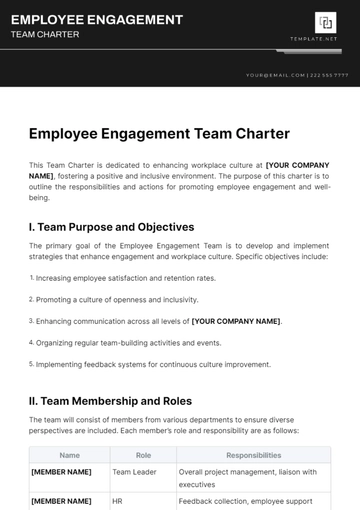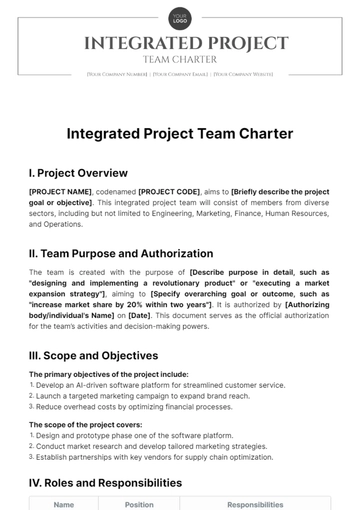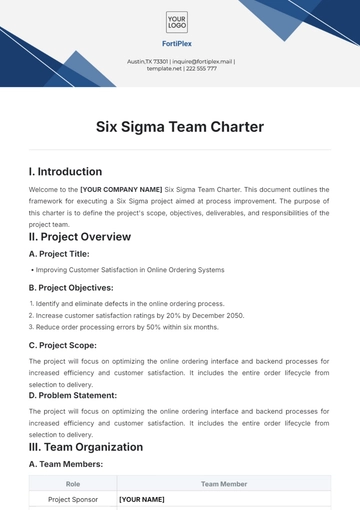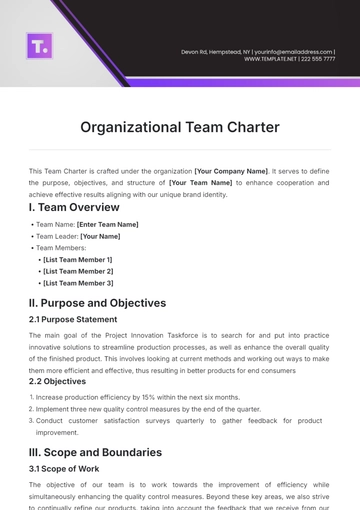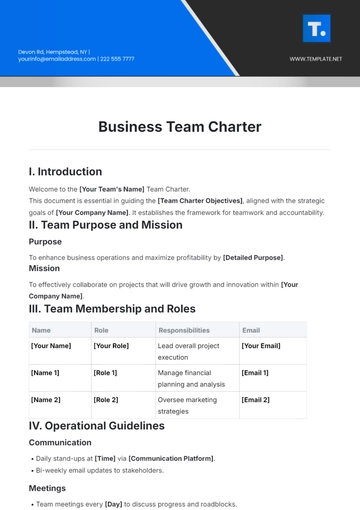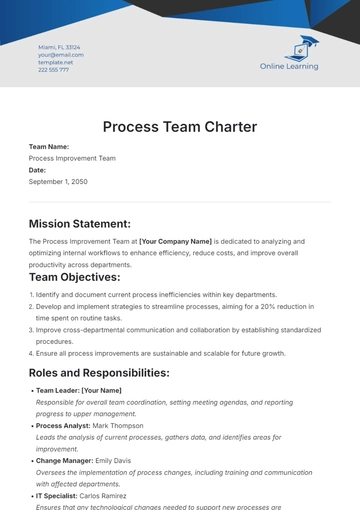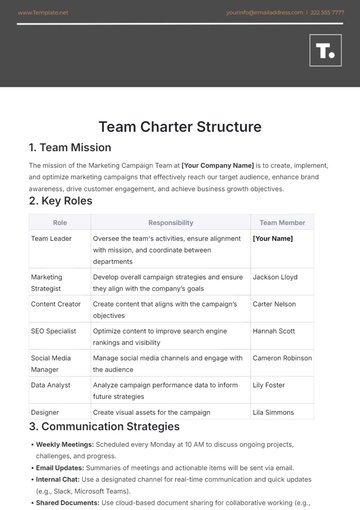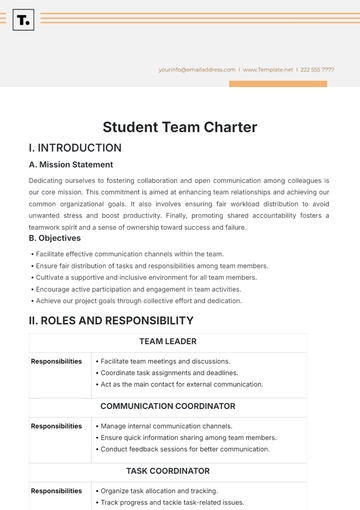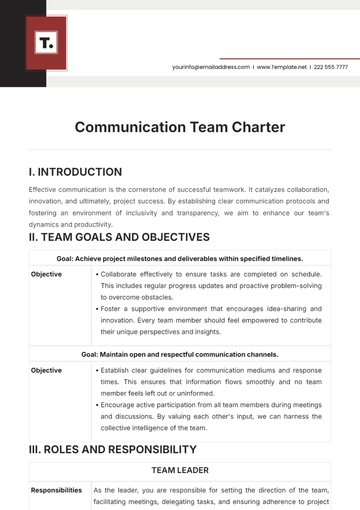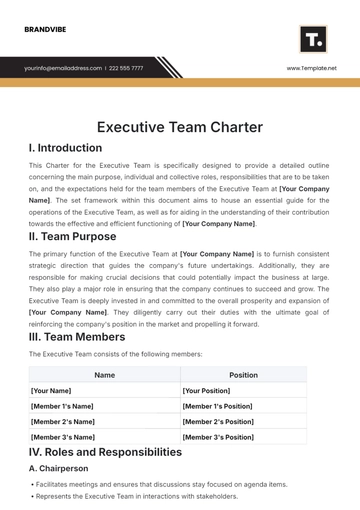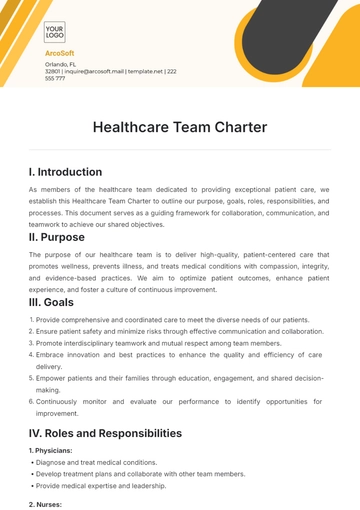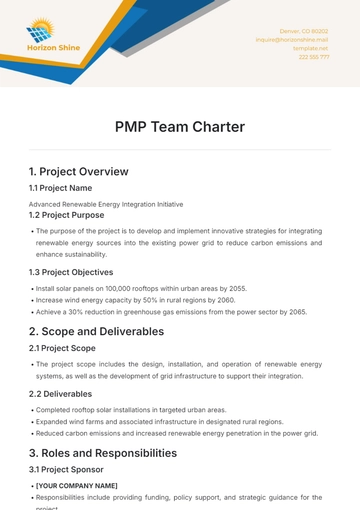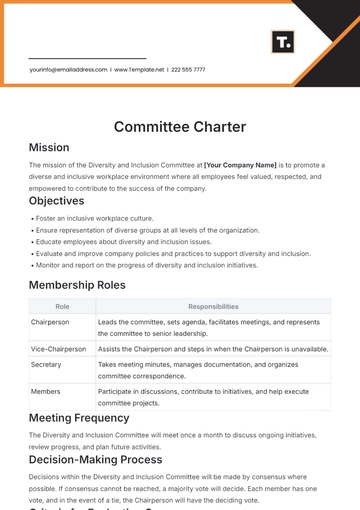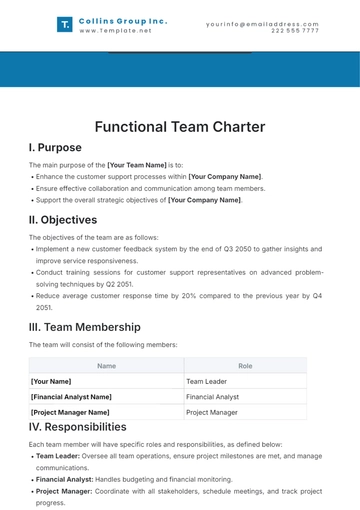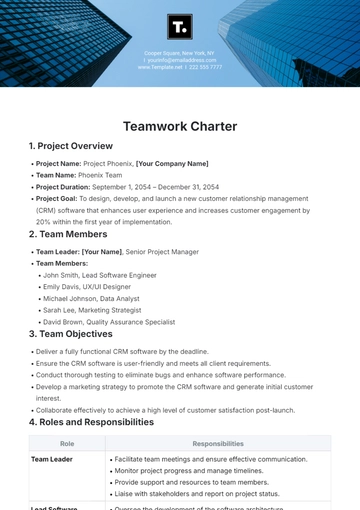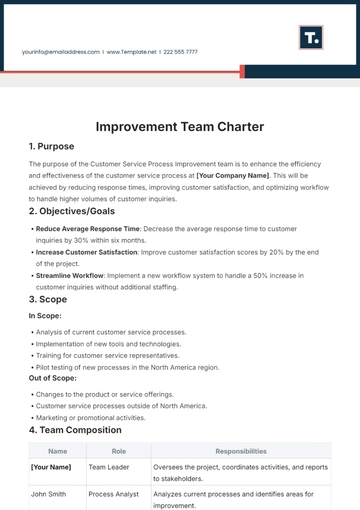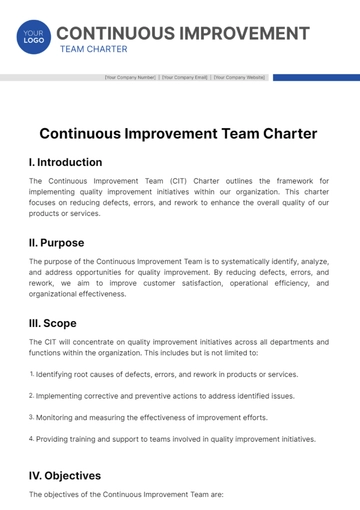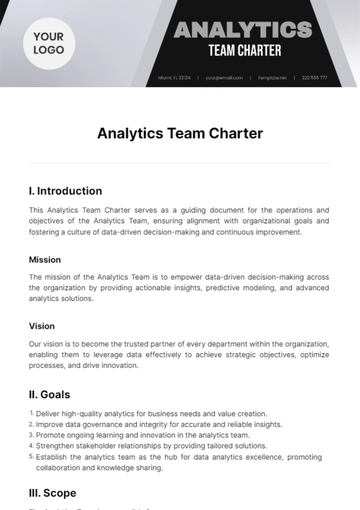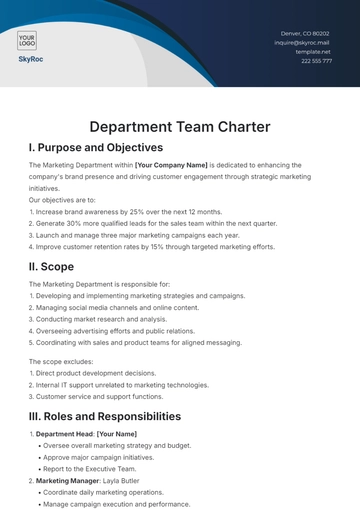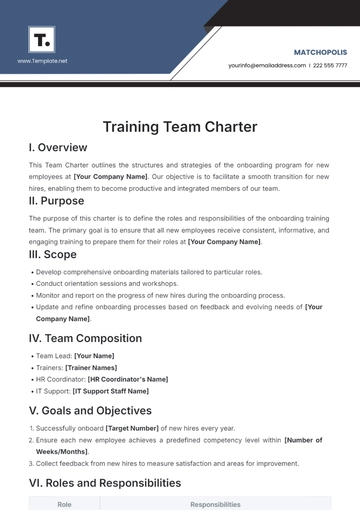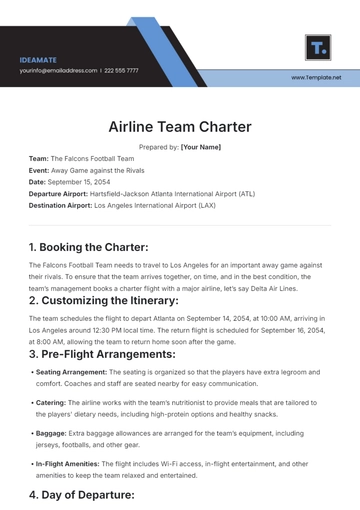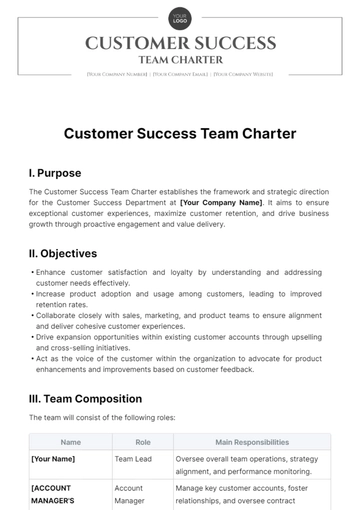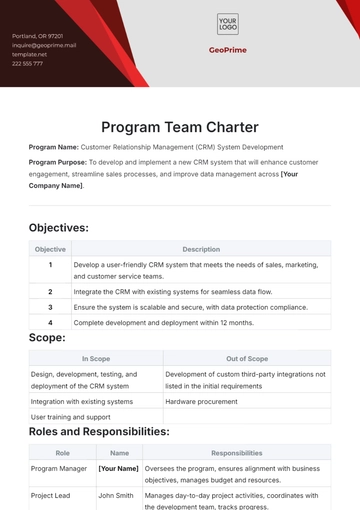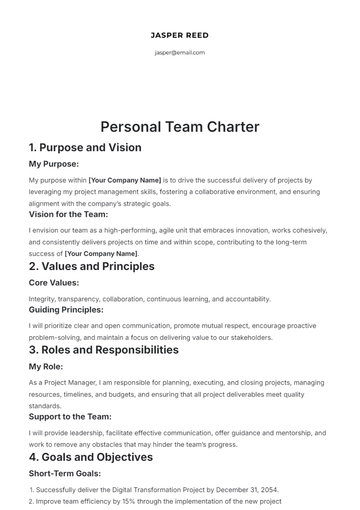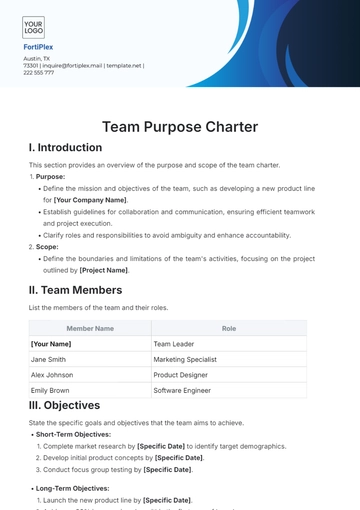Free Lean Project Team Charter
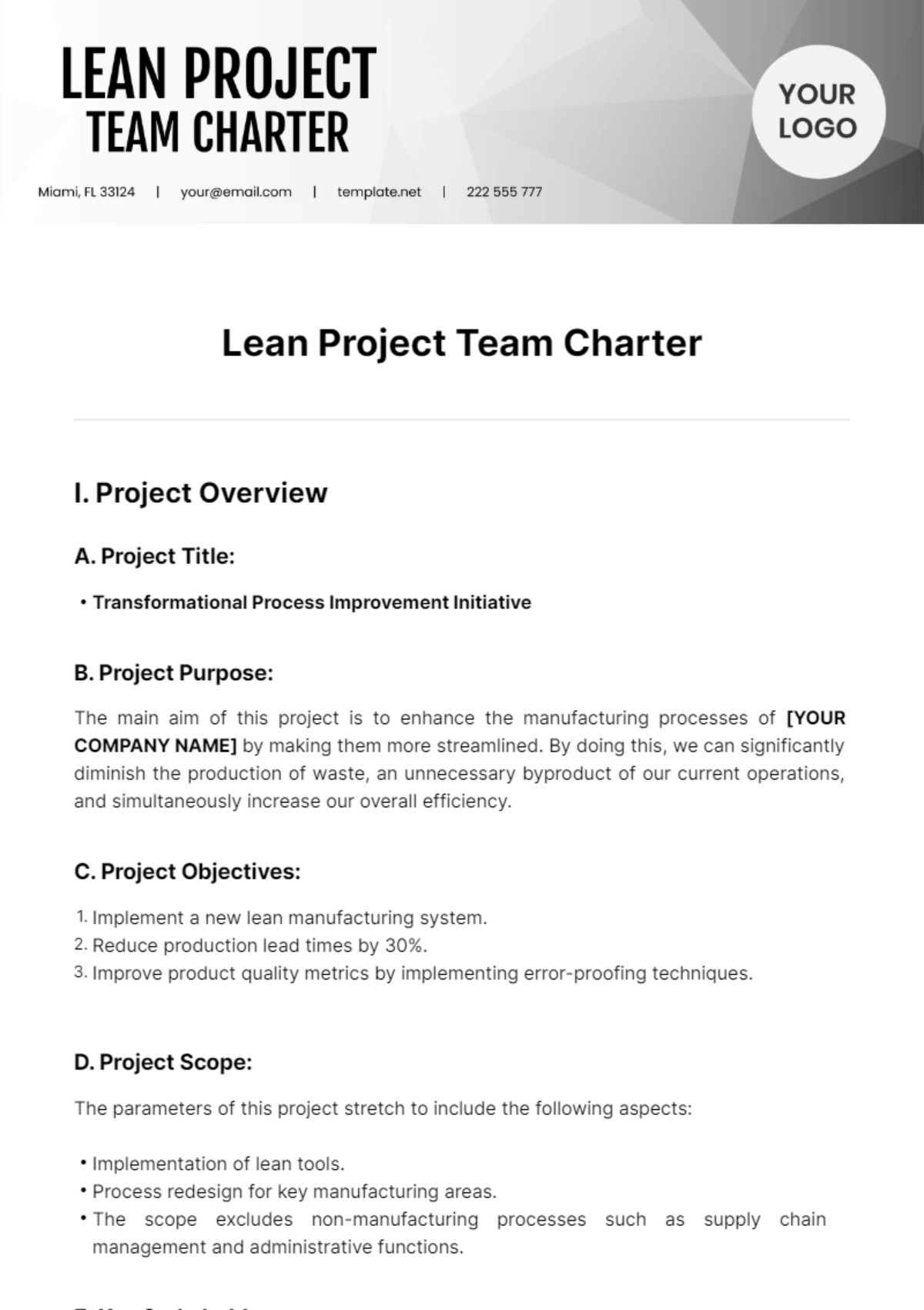
I. Project Overview
A. Project Title:
Transformational Process Improvement Initiative
B. Project Purpose:
The main aim of this project is to enhance the manufacturing processes of [YOUR COMPANY NAME] by making them more streamlined. By doing this, we can significantly diminish the production of waste, an unnecessary byproduct of our current operations, and simultaneously increase our overall efficiency.
C. Project Objectives:
Implement a new lean manufacturing system.
Reduce production lead times by 30%.
Improve product quality metrics by implementing error-proofing techniques.
D. Project Scope:
The parameters of this project stretch to include the following aspects:
Implementation of lean tools.
Process redesign for key manufacturing areas.
The scope excludes non-manufacturing processes such as supply chain management and administrative functions.
E. Key Stakeholders:
Project Sponsor: [SENIOR EXECUTIVE'S NAME]
Project Manager: [YOUR NAME]
Key Stakeholders:
Production Manager: [STAKEHOLDER 1'S NAME]
Quality Assurance Lead: [STAKEHOLDER2'S NAME]
Operations Team: [STAKEHOLDER 3'S NAME]
II. Lean Principles Alignment
A. Lean Principles Applicable:
The project will adhere to the following Lean principles:
Respect for People
Continuous Improvement
Value Stream Mapping (VSM)
B. Value Stream Mapping:
Conduct workshops on Value Stream Mapping (VSM) to identify all the activities across the manufacturing process that either add value or do not add value.
III. Project Management Details
A. Project Manager:
[YOUR NAME]
B. Project Team Members:
Team Member | Role |
|---|---|
[TEAM MEMBER 1'S NAME] | Lean Facilitator |
[TEAM MEMBER 2'S NAME] | Process Engineer |
[TEAM MEMBER 3'S NAME] | Production Analyst |
C. Project Timeline:
Milestone | Deadline |
|---|---|
Project Kickoff | March 15, 2050 |
Lean Training Completion | April 30, 2050 |
Process Redesign Complete | June 30, 2050 |
Lean System Implementation | August 31, 2050 |
Final Review and Approval | October 15, 2050 |
IV. Metrics and Measurement
A. Key Performance Indicators (KPIs):
Key metrics to monitor project success:
Reduction in lead time
Defect rate improvement
Employee engagement scores
B. Success Criteria:
Success will be measured by achieving:
30% reduction in production lead times
20% decrease in defect rates
V. Risk Management
A. Project Risks:
Potential risks and mitigation strategies:
Supply chain disruptions
Mitigation: Diversify supplier base.
Resistance to change from production teams
Mitigation: Comprehensive change management plan.
VI. Communication Plan
A. Communication Channels:
Regular project updates will be communicated via:
Weekly team meetings
Monthly progress reports to stakeholders
B. Stakeholder Engagement:
Engage stakeholders through:
Town hall meetings
Feedback sessions
VII. Resources and Budget
A. Resource Requirements:
Resource needs include:
Lean training programs
Process mapping software
Project management support
B. Budget Allocation:
The budget for the project is allocated as follows:
Training and Education: $50,000
Software and Tools: $30,000
Personnel: $100,000
VIII. Change Management
A. Change Control Process:
Changes to project scope or requirements will be managed through:
Formal change requests
Impact assessment before approval
IX. Approval
A. Signatures:

[SENIOR EXECUTIVE'S NAME]
Project Sponsor
[DATE SIGNED]

[YOUR NAME]
Project Manager
[DATE SIGNED]
- 100% Customizable, free editor
- Access 1 Million+ Templates, photo’s & graphics
- Download or share as a template
- Click and replace photos, graphics, text, backgrounds
- Resize, crop, AI write & more
- Access advanced editor
Discover the Lean Project Team Charter Template on Template.net, perfect for streamlining project workflows. This editable and customizable document empowers you to define project goals and roles effectively. Easily modify using our AI Editor Tool for seamless customization. Simplify project management and enhance efficiency with this versatile resource. Explore Template.net for comprehensive project management solutions.
